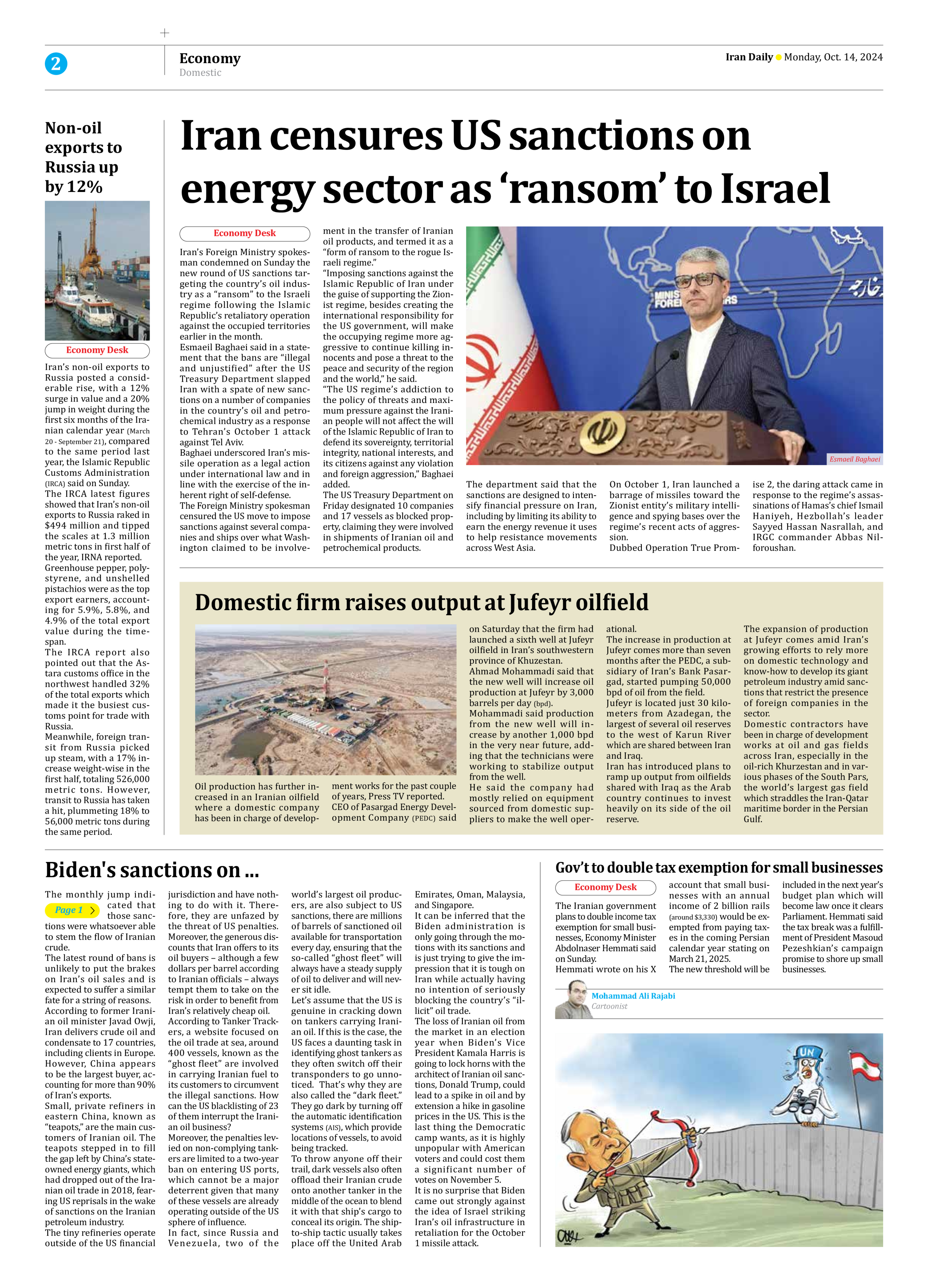
Biden’s sanctions on ...
Page 1
The monthly jump indicated that those sanctions were whatsoever able to stem the flow of Iranian crude.
The latest round of bans is unlikely to put the brakes on Iran’s oil sales and is expected to suffer a similar fate for a string of reasons.
According to former Iranian oil minister Javad Owji, Iran delivers crude oil and condensate to 17 countries, including clients in Europe. However, China appears to be the largest buyer, accounting for more than 90% of Iran’s exports.
Small, private refiners in eastern China, known as “teapots,” are the main customers of Iranian oil. The teapots stepped in to fill the gap left by China’s state-owned energy giants, which had dropped out of the Iranian oil trade in 2018, fearing US reprisals in the wake of sanctions on the Iranian petroleum industry.
The tiny refineries operate outside of the US financial jurisdiction and have nothing to do with it. Therefore, they are unfazed by the threat of US penalties. Moreover, the generous discounts that Iran offers to its oil buyers – although a few dollars per barrel according to Iranian officials – always tempt them to take on the risk in order to benefit from Iran’s relatively cheap oil.
According to Tanker Trackers, a website focused on the oil trade at sea, around 400 vessels, known as the “ghost fleet” are involved in carrying Iranian fuel to its customers to circumvent the illegal sanctions. How can the US blacklisting of 23 of them interrupt the Iranian oil business?
Moreover, the penalties levied on non-complying tankers are limited to a two-year ban on entering US ports, which cannot be a major deterrent given that many of these vessels are already operating outside of the US sphere of influence.
In fact, since Russia and Venezuela, two of the world’s largest oil producers, are also subject to US sanctions, there are millions of barrels of sanctioned oil available for transportation every day, ensuring that the so-called “ghost fleet” will always have a steady supply of oil to deliver and will never sit idle.
Let’s assume that the US is genuine in cracking down on tankers carrying Iranian oil. If this is the case, the US faces a daunting task in identifying ghost tankers as they often switch off their transponders to go unnoticed. That’s why they are also called the “dark fleet.” They go dark by turning off the automatic identification systems (AIS), which provide locations of vessels, to avoid being tracked.
To throw anyone off their trail, dark vessels also often offload their Iranian crude onto another tanker in the middle of the ocean to blend it with that ship’s cargo to conceal its origin. The ship-to-ship tactic usually takes place off the United Arab Emirates, Oman, Malaysia, and Singapore.
It can be inferred that the Biden administration is only going through the motions with its sanctions and is just trying to give the impression that it is tough on Iran while actually having no intention of seriously blocking the country’s “illicit” oil trade.
The loss of Iranian oil from the market in an election year when Biden’s Vice President Kamala Harris is going to lock horns with the architect of Iranian oil sanctions, Donald Trump, could lead to a spike in oil and by extension a hike in gasoline prices in the US. This is the last thing the Democratic camp wants, as it is highly unpopular with American voters and could cost them a significant number of votes on November 5.
It is no surprise that Biden came out strongly against the idea of Israel striking Iran’s oil infrastructure in retaliation for the October 1 missile attack.







